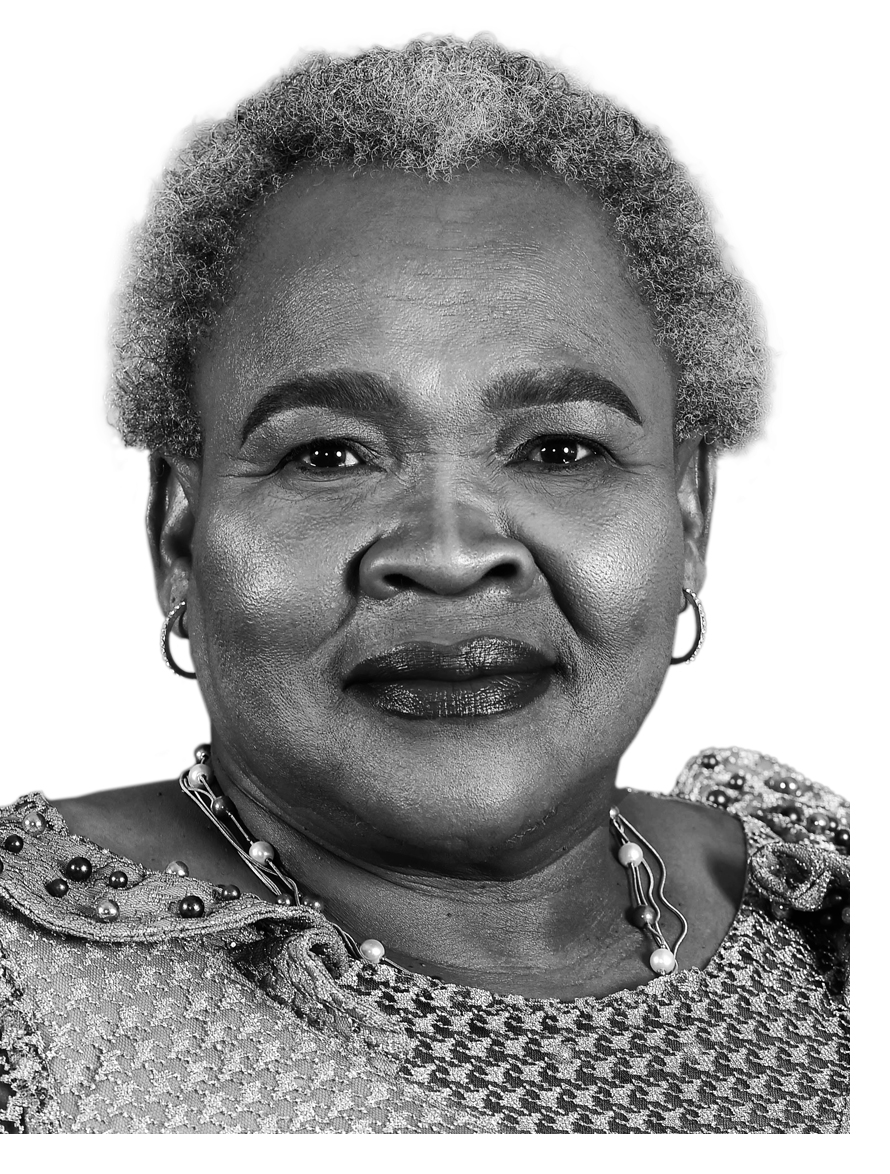Honorable Chairperson,
Minister of Women, Youth and Persons with Disabilities,
Ministers and Deputy Ministers,
All Chairpersons,
Honorable Members,
Honorable Chairperson, it gives me great pleasure to present here today, because this opportunity gives our Department an opportunity to solicit support of Provinces in the implementation of programmes such as the National Strategic Plan on Gender Based Violence and Femicide (NSP: GBVF), the Gender Responsive Planning Budgeting Monitoring, Evaluation and Auditing Framework (GRPBMEAF) and the sanitary dignity project which is critical to keep young girls at schools.
“To be free is not merely to cast off one’s chains but to live in a way that respects and enhances the freedom of others” Nelson Mandela.
Young women and women with disabilities will never be free as long as this rage against them continues. Our mandate is clearly informed by the National Strategic plan on Gender Based Violence and Femicide.
In order to ensure that the NSP on GBVF is a living document, the Department commenced the process of monitoring the integration of the NSP on GBVF from 2021/2022 financial year.
To date, the Department has reviewed the integration of the NSP on GBVF Priorities in the provincial departments’ Annual Performance Plans (APP) in North West, Western Cape, Eastern Cape and Gauteng. The Department also reviewed District Development Plans for some of the Municipalities in North West, Mpumalanga, Limpopo, Northern Cape and the Western Cape.
The Department is in the process of providing feedback to the Municipalities through their Integrated Governmental Relations structures and special feedback sessions, in order to give guidance on the integration of NSP on GBVF priorities to the plans. This exercise enables Municipalities to identify their leadership role in the fight against gender-based violence in line with their mandate and budget as such.
Councillor Induction Programme on NSP on GBVF and Gender Responsive, Planning, Budgeting, Monitoring, Evaluation and Audit Framework
Working with SALGA the Department was involved in the induction programme of Councillors with the main objective of sharing information on the role of local political leadership in leading the fight against GBVF through the localisation of the NSP on GBVF. The role of the political leadership on the localisation of the Gender Responsive Planning Budgeting, Monitoring, Evaluation and Auditing Framework (GRPBMEAF) was also covered during the sessions.
Rapid Response Teams in Six Provinces
As a result working with SALGA and COGTA, we have established Rapid Response Teams in 6 provinces, that is, Eastern Cape, Northern Cape, Gauteng, Free State, Mpumalanga and KwaZulu-Natal. The function of these structures is to lead, coordinate and monitor the multi-stakeholder efforts within the Municipality to fight gender-based violence and ensure accountability. It is also to ensure that victims are provided with the coordinated support from all the stakeholders (including departments and Civil Society Organisations) whenever there is an incident of gender-based violence.
We are in the process of building the capacity of these Rapid Response Teams in order to ensure that they effectively execute their function in leading the fight against gender-based violence and femicide. Ditebogo Enterprise and Development, will in partnership with Afrika Tikkun, place 43 unemployed graduates at the municipalities where there are Rapid Response Teams.
Another project that the Department has been implementing in partnership with the provinces is the 100-Day Challenge in alignment with the NSP on GBVF, in this case each district had a specific focus based on the pillars. For example, the Frances Baard District Municipality aimed to reduce sexual offenses, while the City of Tshwane Metropolitan Municipality focused on evidence-informed programs, safety audits, and actions to reduce GBVF.
In Mangaung, the goal was to reduce the maintenance case backlog by 75% within 100 days and increase the finalization rate of maintenance cases from 51% to 75%. Greater Tzaneen aimed to increase the reporting of rape cases by 80%, with a particular emphasis on rural areas. Lejweleputswa focused on increasing the referral of new Gender Based Violence cases reported by 300% to enhance response, care, support, and healing.
In Limpopo and Mpumalanga aimed to increase engagements on Gender Based Violence, Femicide and Sexual Harassment at Exxaro within 100 days and initiated a campaign to secure 10,000 pledges. These challenges fostered collaboration, innovation, and disciplined execution, leading to tangible impact in addressing Gender Based Violence.
We currently making follow-up in the Western Cape on serious case of GBV raised during District Development Model Presidential Imbizo at Drakenstein Municipality and at OR Tambo at Lusikisiki. We don’t leave any stone unturned on GBVF this time around. However, GBVF will not end until we all take responsibility to prevent it and report to law enforcements where it arises.
Disability: Advocacy and Mainstreaming
Persons with disabilities are the most affected by lack of access to quality education, economy inclusion, health and transport facilities, therefore it can be said that majority of them leave in poverty despite the social grants, because disability on its own is costly. Poverty, specifically, is not a single factor but rather is characterized by multiple physical and psychological effects.
While they experience many challenges, there are positive developments that are worth celebrating, we welcome the approval by parliament on two important legislative mandates on the ratification of the AU Protocol on Disability which is due to be deposited to the African Union and the Constitutional amendment of South African Sign language as the 12th Official language of South Africa, as the Minister has already indicated.
Despite the Constitutional guarantee for equal access to opportunities in education, employment and health for all, including persons with disabilities, and prohibits discrimination on the basis of disability, persons with disabilities remain disadvantaged amongst South Africa’s poor and undereducated.
In response to this challenge, the department hosted, a National Summit on Access to Education for Persons with Disabilities in partnership with the Department of Basic Education, followed by a National Economic Summit on and for persons with disabilities to identify, gaps and challenges and limiting barriers to access into the mainstream economy by persons with disabilities. The summit sought to further maximise the active participation of persons with disabilities in all economic initiatives, interventions and opportunities created by government and private sector as employees and entrepreneurs. This year we will be hosting in collaboration with the Department of Transport, a National Summit on Access to Transport for Persons with Disabilities.
The data collected by the DPSA on employment of persons with disabilities in the public service show that only 1% on employment of persons with disabilities and therefore deliberate and concerted efforts should be made to reach the 7% target by 2023 in line with the National Development Plan.
The department has identified a number of barriers that limit access to employment of persons with disabilities. One of the barriers identified was the perception regarding provision of reasonable accommodation and to that end the department conducted a research on the cost of disability and also on the elements and economic costs for households with children with disabilities and adults with physical disabilities.
The department has further developed a capacity building training program which is been delivered through the National School of Government to capacitate public servants on disability inclusion. We urge and encourage Provincial departments and local government to enrol public servants to capacitate them to become fully effective when delivering services to persons with disabilities.
We have conducted awareness and capacity-building workshops across three spheres of government for persons with disabilities. The framework of the workshop was based on raising awareness, access and reasonable accommodation. The plans for mainstreaming inclusive approach on disabled people in programs of service delivery.
Gender-Responsive Planning, Budgeting, Monitoring, Evaluation and Auditing Framework
The department in collaboration with SALGA conducted Capacity Building for Councillors on the above-mentioned framework during induction five out of nine provinces were in attendance. We are satisfied with the progress as we were able to train the urban and rural councillors and the workshops will still continue.
The most strategic intervention on the Gender Responsive Planning Budgeting Monitoring, Evaluation and Auditing Framework (GRPBMEAF), is taking place today where the DWYPD together with the DPME, National Treasury, the International Monetary Fund and the EU are hosting a Special FOSAD meeting to workshop Directors General on Gender Responsive Budgeting. This will have far lasting impact because when the National Treasury instructs all spheres of government, including municipalities to implement the Gender Responsive Budgeting, they will or risk losing their budget.
Further, the Department met with the Office of the Auditor General of South Africa to ensure that this framework is part of the annual audits.
We will continue to monitor and evaluate the socio-economic empowerment and development of Women Youth and Person with Disabilities throughout 2023/24. We maintain as this department that “There can be no greater gift than that of giving ones time and energy to help others without expecting anything in return” - Nelson Mandela!
I thank you!







